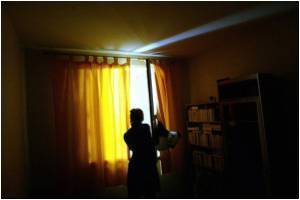Researchers have said that chronic depression originates from more ancient mechanisms used by the body to deal with physical injury, such as pain.

"Once we had a theoretical model for the biology of a well-functioning depressive response, it helped make sense of all the myriad differences between depressed and non-depressed subjects that the biomedical approach has painstakingly amassed," said Wager-Smith.
According to the new theory, severe stress and adverse life events, such as losing a job or family member, prompt neurobiological processes that physically alter the brain.
Neurons change shape and connections. Some die, but others sprout as the brain rewires itself.
This neural remodelling employs basic wound-healing mechanisms, which means it can be painful and occasionally incapacitating, even when it's going well.
Real problems occur only "when these restructuring processes go into overdrive, beyond what is necessary and adaptive, and for longer periods of time than needed. Then depression becomes pathological," Markou said.
Advertisement
Similarly, if chronic depression is proven to be a neuroinflammatory condition, then anti-inflammatory treatments should also have some antidepressant effects.
Advertisement
The study is published in the September online edition of Neuroscience and Biobehavioural Review.
Source-ANI















